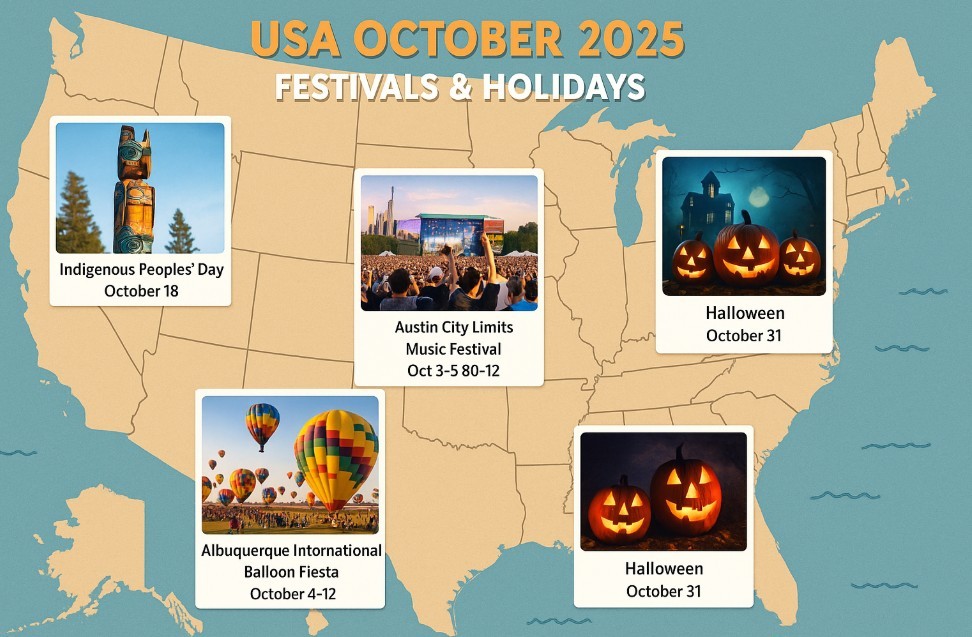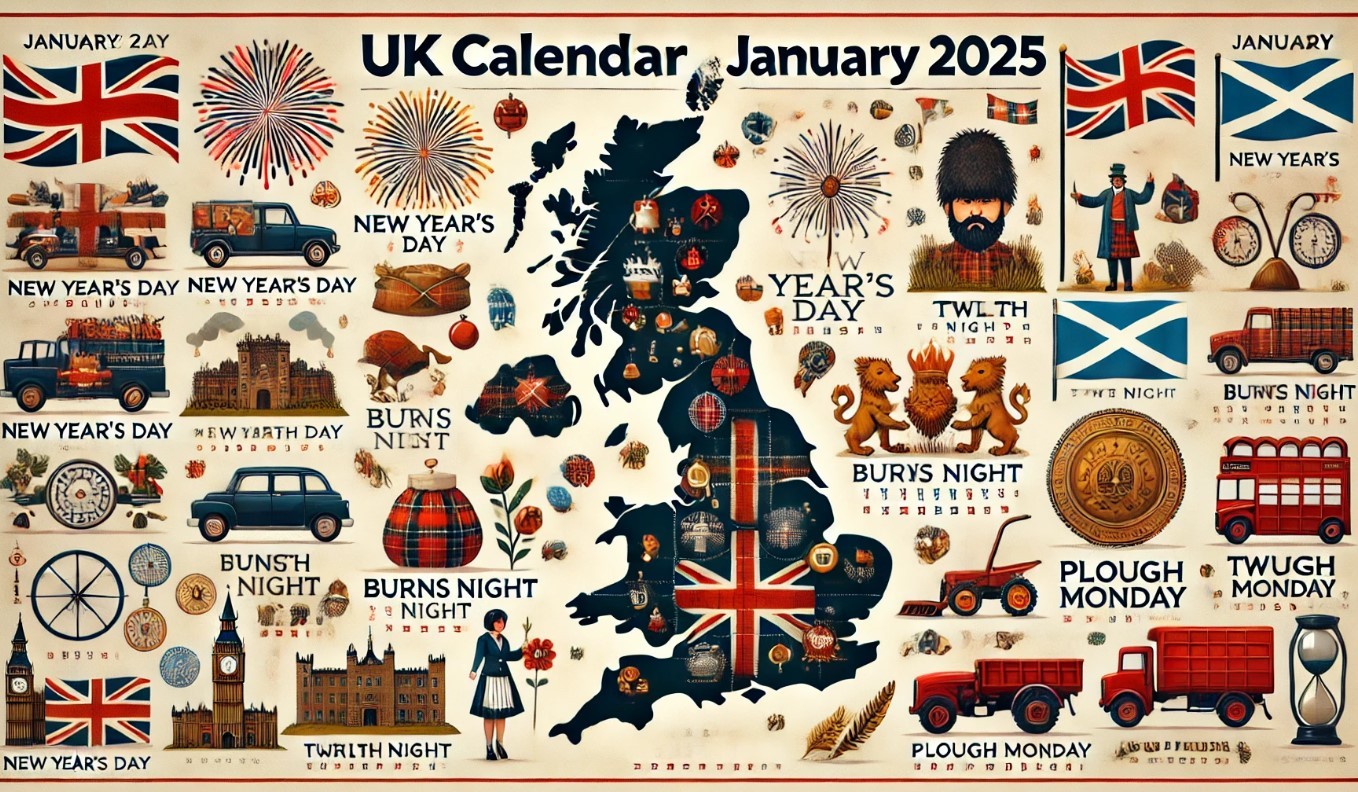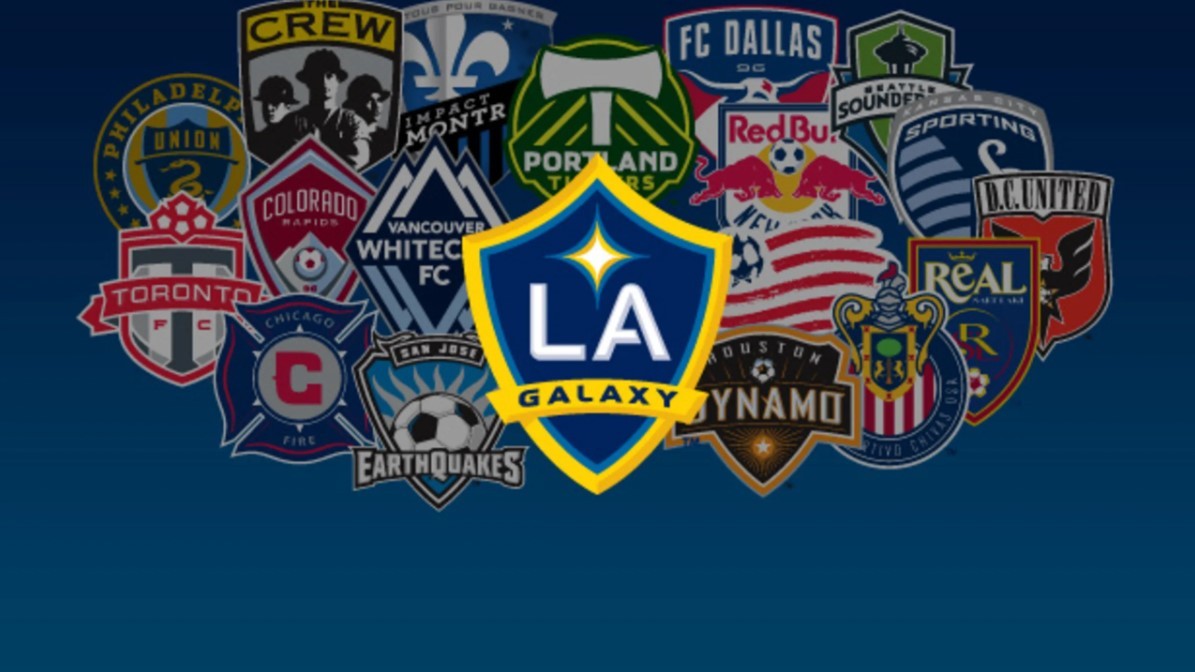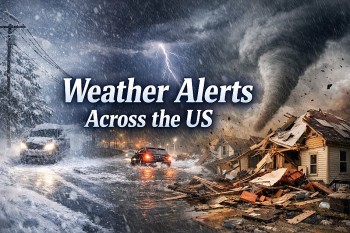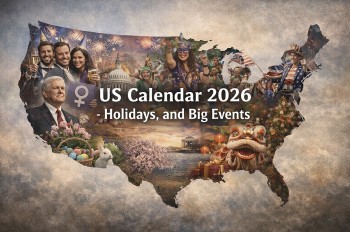Statutory Holidays in Canada - Dates, Significances and Celebrations
Canada's many holidays are a vivid reflection of its rich cultural fabric. Each one is a main event for celebration, remembering, or showing national pride.
From coast to coast, Canadians celebrate a wide range of statutory, provincial, and territorial holidays. These holidays mark important historical and cultural events and provide a break from daily life, giving people a chance to think, celebrate, and spend time with each other.
There are federal holidays in Canada, and each province and territory also has its own set of holidays.
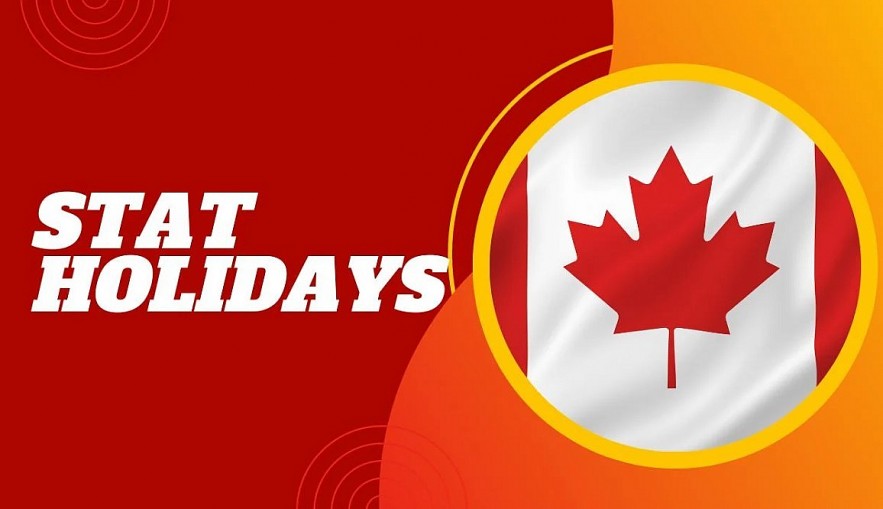 |
| List of Canada Statutory Holidays |
Even though Valentine's Day, Mother's Day, St. Patrick's Day, Father's Day, and Halloween are celebrated all over Canada, they are not official holidays. People do not get paid time off for these days, though. You can read and post messages about Canadian statutory holidays on our Canadian holiday forum.
New Year's Day, Good Friday (Easter), Canada Day, Labour Day, and Christmas Day are all statutory holidays. These days are celebrated all over the country and employees are paid for them. Federal employees also have the days of Easter Monday, Victoria Day, National Day for Truth and Reconciliation, Thanksgiving, and Boxing Day off. Non-federal employees usually have these days off too, but they are not required to.
In 2021, September 30 was made a federal holiday. It is now known as National Day for Truth and Reconciliation.
A few stores are open on unofficial holidays, like Boxing Day and Remembrance Day, but most businesses are closed.
Learn more: 2025 Canada Calendar - Full List of Public Holidays And Observances: Dates and Celebrations
What is a Canadian Statutory Holiday/Stat Holidays?
People in Canada often call certain days "Stat Holidays," which are legal holidays when most workers are entitled to a paid day off. These days off are set by the federal, provincial, or territorial governments. They are meant to let workers celebrate or remember important religious, historical, or cultural events without worrying about losing pay.
In Canada, a national statutory holiday is like a "paid day off." To avoid problems in the future, you should always write in your employment contract that full pay is due on these days.
Every year, Canada has a number of national holidays that everyone in the country celebrates. Not only are these days public holidays, but there are also provincial, territorial, and municipal public holidays.
Key Facts: Canada Statutory Holidays
Different areas are affected by these holidays in different ways. As people get ready for holidays, retail stores may see a rise in sales. On the other hand, professional services often close down to give their workers a break.
Holidays bring people together to do things, give them a sense of identity and tradition, and strengthen their relationships with others. They help employees have a better work-life balance and mental health by giving them time to relax and recharge.
Legal Basis
Statutory holidays are set by federal, provincial, or territorial laws, which means that all workers are entitled to time off. In Canada, workers have the right to regular pay for these holidays, which is written into the laws that govern them.
Compensation for Working
In most cases, when an employee works on a legal holiday, they get extra pay, which is usually called "holiday pay." Depending on the area and the terms of the employment contract, this pay is often set at a higher rate, like 1.5 times (time-and-a-half) or double the standard rate.
Variability Across Regions
Some statutory holidays, like New Year's Day and Christmas Day, are celebrated all over the country, while others are only observed in certain provinces or territories. Family Day is a holiday in some provinces, like Alberta, Ontario, and Saskatchewan, but not all of them.
Sector-Specific Observances
Federal workers may be the only ones who observe certain holidays. For instance, federal workers recognize Easter Monday and the National Day for Truth and Reconciliation. In the private sector, however, different provinces observe these days in different ways.
Significance and Observance
Each statutory holiday has its unique significance, often rooted in historical or cultural milestones. For instance:
Victoria Day commemorates Queen Victoria’s birthday and marks the unofficial start of summer in Canada.
National Indigenous Peoples Day acknowledges the cultures and contributions of the Indigenous peoples to Canada
Full List: The National and Provincial Stat Holidays Observed in Canada
Here is a detailed table that lists all of Canada's statutory holidays and how they are observed at the national and provincial levels.
Please keep in mind that some holidays are celebrated in different ways in different parts of the country, and some are not officially observed in all provinces and territories. Canada's states all have their own holidays on top of the Canada Stat holidays.
New Year's Day January 1 Nationwide
Islander Day Third Monday in February PE
Family Day Third Monday in February BC, AB, SK, ON, NB
Family Day is on February 3, which is a Monday.
The only places in Canada that celebrate Family Day are New Brunswick, Alberta, Manitoba, Ontario, Saskatchewan, and British Columbia. It is not a national holiday.
In other provinces, February has the same day off, but they're not called "family day." Islander Day is on the third Monday of February in Prince Edward Island, and Louis Riel Day is on the same Monday in Manitoba. Today is Heritage Day in Nova Scotia.
Family Day was made so that people could spend time with their families. It also gives people a day off between New Year's Day and Good Friday, which is about three months apart.
Family Day is not a federally recognized holiday, so all federal workers, including those who work for the government or in the post office, have to come to work.
This holiday is controversial because different people can celebrate it in different ways. Private sector workers vs. government workers. A lot of comments talk about who deserves more time off, benefits, sick leave, and the chance to make a difference in society and the economy as a whole.
As was already said, Family Day is a debatable holiday in many provinces because not everyone gets the day off. It's still not clear why the whole country can't just agree on 9 or 10 common statutory holidays. This is a good example of how complicated our laws are.
Family Day activities that many people do include ice skating, hockey, snowboarding, skiing, and going to different winter festivals. But eating beaver tails and pancakes with maple syrup must be the best part of Family Day!
 Family Day In Canada: Date, Celebration, History, Meaning Family Day In Canada: Date, Celebration, History, Meaning Canadians have a day to show love for their family. It's Family Day in February. Let's take a look at Family Day's meaning and history. |
Heritage Day Third Monday in February NS
Louis Riel Day Third Monday in February MB
St. Patrick's Day March 17 NL
Good Friday Friday before Easter Sunday Nationwide except QC
In 2024, Good Friday is March 29 and Easter Sunday is March 31.
Do you have to work on Easter? It depends on your boss. Easter lasts for more than one day. In Canada, Good Friday and Easter Monday are both federally recognized holidays. Good Friday is the only day off for most people who work in the private sector.
Christians believe that Good Friday is the day that Jesus Christ died. It is as important to Christianity as Easter Sunday, when Jesus rose from the dead. That Jesus rose from the dead is the best proof that he is the son of God, so many people agree that this holiday is more important than Christmas.
In provinces that don't celebrate Family Day, Islander Day, or Louis Riel Day, the first official holiday after New Year's Day is Good Friday.
They can choose whether to give the day off on Good Friday or Easter Monday in Quebec.
Easter Monday Monday after Easter Sunday QC
St. George's Day April 23 NL
Victoria Day
Victoria Day is a legal holiday in Canada. It is celebrated in all provinces and territories on the Monday before May 25. It celebrates the birthday of Queen Victoria.
This holiday is known as "National Patriotes Day" (Journée nationale des patriotes or Fête des Patriotes) in Quebec.
National Patriotes Day in QC Monday preceding May 25th Nationwide except NB, NS, PE, NL
National Aboriginal Day June 21 NT
Fête Nationale
St. Jean Baptiste Day June 24 QC
Discovery Day June 24 NL
Canada Day
Canada Day is a holiday to honor Canada's birthday. Canada became a new federation with its own constitution on July 1, 1867, when the Constitution Act, which used to be called the British North America Act, was signed into law.
Everyone in Canada, including the territories and provinces, takes the day off for Canada Day, which is a national holiday.
Fireworks shows usually begin at 10 p.m. local time in many cities and venues across the country. After spending the day at different Canada Day events and celebrations, some families watch these fireworks every year as a tradition.
Memorial Day in NFL July 1 Nationwide
Nunavut Day July 9 NT
Civic Holiday First Monday in August AB, BC, SK, ON, NB, NU
Monday, August 5 is a civic holiday.
The first Monday of August is the Civic Holiday. In some provinces and territories, it's a public holiday. The civic holiday is not a federally required statutory holiday, but many people across the country get the day off. If you don't get this day off, there isn't a statutory holiday for two months between Canada Day and Labour Day.
The Civic Holiday is also known as the August long weekend. Tens of thousands of families are traveling this weekend to go camping, to cottages, and other places. Today is likely the busiest day on the highways.
In different provinces and cities, it goes by different names.
Different places in Canada and the United States celebrate it on different days. In Newfoundland, it's called Regatta Day, in Manitoba, Terry Fox Day, in Saskatchewan Day, in British Columbia Day, in British Columbia, in Nova Scotia and Prince Edward Island, as well as in Toronto on Simcoe Day, in New Brunswick Day, in Ottawa on Colonel By Day, in Alberta on Heritage Day, in Burlington, ON on Joseph Brant Day, and in the City of Vaughan, ON on Benjamin Vaughan Day.
Labour Day First Monday of September Nationwide
To celebrate Labour Day in Canada, people must take time off on the first Monday of September. The United States also celebrates it on the same day.
For the record, this holiday honors workers and the labor union movement. But most of us just think of it as the last long weekend of summer, a great time to have one last barbecue or go canoeing.
Once the Labor Day holiday is over, many seasonal businesses and attractions close for the season. For tourist attractions, this is also the start of the fall shoulder season.
National Day for Truth and Reconciliation September 30 Nationwide
One of the many suggestions made by the Truth and Reconciliation Commission was to make a new legal holiday to remember the victims of residential schools. The event takes place every year on September 30.
It's not a holiday today. Businesses that are controlled by the federal government, like banks, post offices, the federal government, and so on, will be the only ones closed on this new holiday.
The 30th of September was made a legal holiday in British Columbia in 2023.
At first, indigenous groups didn't want to use September 30 because that's when Orange Shirt Day is celebrated. Instead, June 21, which is now National Indigenous Peoples Day, was thought of as the other day. There are only ten days until Canada Day, though, so this would be too close to that holiday.
The fact that National Day for Truth and Reconciliation is on the last day of September makes this a new holiday, which may come as a surprise. No other holiday is on the last day of any month. The Canadian Real Estate Association says that the dates of real estate closings could be affected. You should also know that on September 30, Canada Post, airlines, and banks will all be closed, which will affect public services.
A lot of people who commented said it wasn't fair that it was only a holiday for government workers. This makes me wonder: if it was a public holiday, would business owners support it or have the money to pay their employees for another holiday?
Thanksgiving Second Monday in October Nationwide except NB, NS, PE, NL
Thanksgiving is a legal holiday in Canada that is celebrated every year on the second Monday of October. It's not a legal holiday in PEI, Newfoundland, New Brunswick, or Nova Scotia, but federally regulated institutions do observe Thanksgiving in those provinces as well. Thanksgiving in the US is on the fourth Thursday of November.
The original idea was to give thanks for the harvest, but over the years, the tradition has changed for many Canadian families. Now, the main goal is to get together with family and eat a big turkey dinner. Apple cider, turkey stuffing, and pumpkin pie are all traditional Thanksgiving foods that you can't miss.
For the first time, Thanksgiving was celebrated in Canada in 1872, when the Prince of Wales got better after being very sick. After 1879, there were celebrations every year, but not always in October. Sometimes they were held around November 11, Armistice Day.
Remembrance Day November 11 Nationwide except ON, QC, NS, NL
Today is Remembrance Day, a time to honor soldiers, sailors, and airmen who have served our country.
Armistice Day is another name for this day. It marks the date and time that armies stopped fighting in World War I, on November 11, 1918, at 11 a.m. (12 a.m. on November 11, 1918). In the First and Second World Wars, about 100,000 Canadian soldiers died.
In most of Canada, except for NS, NWT, ON, and QC, Remembrance Day is a federal holiday. This is also the case in many other countries around the world where the day is celebrated on a national level.
Today is Canada Day, and all government buildings fly the flag. At 11 a.m., there is a two-minute silence to remember those who fought for Canada. There are a lot of people who wear poppies before and on Remembrance Day to honor and support the Canadian troops. Most of the time, poppies are given away for free, but sometimes people give money in exchange.
Christmas Day December 25 Nationwide
Our holiday poll shows that Christmas is by far Canada's favorite holiday, with over twice as many votes as Canada Day.
This shouldn't come as a surprise; most people like Christmas for some reason, whether it's the smell of gingerbread cookies or eggnog or the thrill of opening presents.
Christians celebrate Christmas as a time to remember the birth of Jesus Christ, but many people who are not religious also enjoy this holiday.
In Canada, as in most other places in the world, Christmas Day is a federal holiday in every province and territory. After that is Boxing Day, which is on December 26.
Boxing Day December 26 ON
The day after Christmas is Boxing Day. It's called "Boxing Day" because around the Middle Ages, servants in Britain got a day off and a gift box on this day.
Christmas Day is a federal holiday, and the Canadian Labour Code lists it as a holiday. However, not all provinces and territories follow it the same way. It is not a legal holiday in Alberta or British Columbia, nor is it a holiday in Quebec. The day is a holiday in Saskatchewan for the government and public services. In real life, many businesses and organizations are closed, but stores are usually open.
There are no stores open in some places, like New Brunswick, Nova Scotia, Prince Edward Island, and Newfoundland and Labrador. Every post office in the country is closed. Schools are closed on Boxing Day because it is during the Christmas break. Public transportation may run at full or reduced capacity, or it may not run at all. Boxing Day falls on a Sunday or Saturday, which are both non-working days. On the working day before or after the general holiday, workers are entitled to a holiday with pay.
Other Observations
Valentine’s Day, Mother’s Day, St. Patrick’s Day, Father’s Day, and Halloween are widely celebrated across Canada but are not considered statutory holidays. Thus, there is no entitlement for paid time off on these days.
Most businesses might be closed on holidays like Boxing Day and Remembrance Day, although they are not statutory holidays nationwide.
Provincial Statutory Holidays
In addition to national statutory holidays, each province and territory in Canada has its own unique holidays. Some examples include:
- Family Day (Third Monday in February): Observed in several provinces including Alberta, British Columbia, and Ontario. It is a day to spend time with family and engage in recreational activities.
- Saint-Jean-Baptiste Day (June 24): Celebrated in Quebec, this holiday honors the patron saint of French Canadians and features parades, concerts, and fireworks.
- Civic Holiday (First Monday in August): While not a national statutory holiday, Civic Holiday is observed in many provinces as a day off to enjoy summer activities.
Holiday DestinationsMost people travel when they have time off from work. Depending on the time of year, Canadians like to travel to Mexico, Cuba, Jamaica, and some European countries like France and Italy. In the winter, many people fly south to Florida, Hawaii, or Costa Rica to spend time in hotels and on the beaches. This is a great way to avoid shoveling snow. The Canadian dollar is pretty strong right now, so it doesn't cost too much to rent a car and stay at nice hotels abroad during the summer. There are also a lot of deals to Italy, Spain, the UK, Japan, and other not-so-warm countries. |
In Conclusion
Statutory holidays in Canada offer an opportunity for people to celebrate national history, cultural traditions, and religious beliefs. Whether commemorating significant moments in the country’s past or taking time to rest and spend with loved ones, these holidays are an integral part of Canadian life. While most statutory holidays are celebrated nationwide, some are unique to certain regions, reflecting the diverse cultural landscape of Canada.
FAQs About Statutory Holidays in Canada
-
What are statutory holidays in Canada? Statutory holidays, or "stat holidays," are designated public holidays mandated by federal, provincial, or territorial law. These holidays provide employees with a paid day off. In most cases, businesses, schools, and government offices close on statutory holidays.
-
Do all provinces in Canada observe the same statutory holidays? No, while there are several national statutory holidays, each province and territory can also designate its own holidays. For example, Family Day is observed in several provinces but not nationwide. Additionally, Quebec celebrates Saint-Jean-Baptiste Day, which is unique to the province.
-
What happens if a statutory holiday falls on a weekend? If a statutory holiday falls on a weekend, it is usually observed on the next weekday (either the following Monday or Friday). This ensures that employees still receive a day off. For example, if Canada Day (July 1) falls on a Saturday, it may be observed on the following Monday.
-
Do all employees in Canada get a paid day off on statutory holidays? Most employees are entitled to a paid day off on statutory holidays, but the rules can vary depending on the province and the type of work. In some cases, employees who work on a statutory holiday may be entitled to premium pay (often time-and-a-half) and another day off.
-
Are businesses required to close on statutory holidays? Many businesses, including government offices and schools, are required to close on statutory holidays. However, some essential services like hospitals, public transportation, and certain retail stores may remain open. Specific regulations regarding business operations on statutory holidays can vary by province.
-
What is the difference between a statutory holiday and a civic holiday? A statutory holiday is legally recognized and provides employees with a paid day off, whereas a civic holiday may not be mandated by law and does not always guarantee a paid day off. Civic holidays, like the Civic Holiday in August, are often observed by tradition and may not be treated as statutory holidays in all provinces.
-
Is Remembrance Day a statutory holiday in Canada? Remembrance Day (November 11) is a statutory holiday in some provinces, including Alberta, British Columbia, and Nova Scotia, but it is not recognized as a statutory holiday in others like Ontario and Quebec. Despite this, many people across Canada observe the day with ceremonies to honor military veterans.
-
Do statutory holidays apply to part-time employees? Yes, part-time employees are typically entitled to statutory holiday pay, but the amount they receive is usually prorated based on their average hours worked. Specific rules may vary depending on the province or territory.
-
Are there any religious statutory holidays in Canada? Some statutory holidays, like Christmas Day and Good Friday, have religious origins. However, they are widely observed as public holidays and are not limited to those practicing Christianity. People of all backgrounds are given the day off, regardless of religious affiliation.
-
Can employees be required to work on a statutory holiday? In certain industries, employees may be required to work on a statutory holiday. If so, they are often compensated with premium pay and may also be given another day off in lieu. This depends on the employment standards in each province or territory.
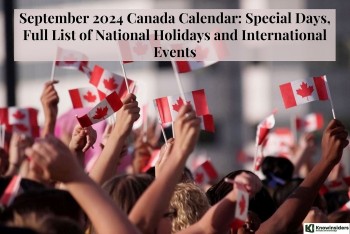 September 2024 Canada Calendar: Special Days, Full List of National Holidays and International Events September 2024 Canada Calendar: Special Days, Full List of National Holidays and International Events In Canada, September is filled with a variety of national holidays, unique observances, and cultural celebrations that fill the calendar with a wealth of customs ... |
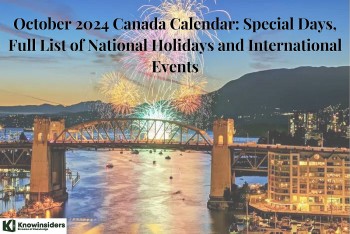 October 2024 Canada Calendar: Special Days, Full List of National Holidays and International Events October 2024 Canada Calendar: Special Days, Full List of National Holidays and International Events As October unfolds in Canada, the month is filled with national holidays, special days, observations, and international events that reflect the diverse culture and history ... |
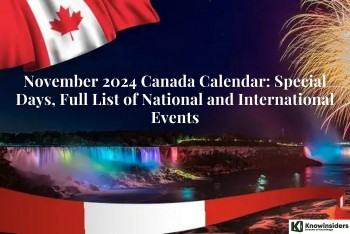 Canada Calendar November 2024: Special Days, Full List of National Holidays and International Events Canada Calendar November 2024: Special Days, Full List of National Holidays and International Events November in Canada is a month rich with diverse cultural, historical, and social observances. From solemn remembrances to vibrant festivals, Canadians across the country come ... |
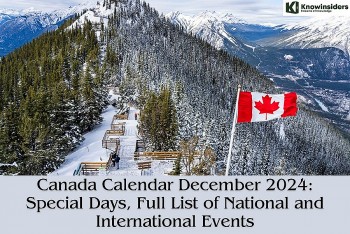 Canada Calendar December 2024: Special Days, Full List of National Holidays and International Events Canada Calendar December 2024: Special Days, Full List of National Holidays and International Events As the year comes to a close, Canada comes alive with a variety of national days, special observances, and festivals that highlight the rich cultural ... |

